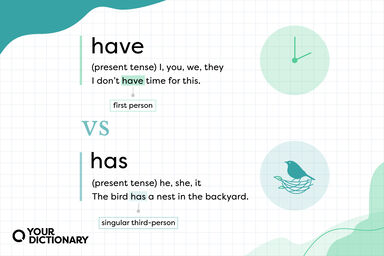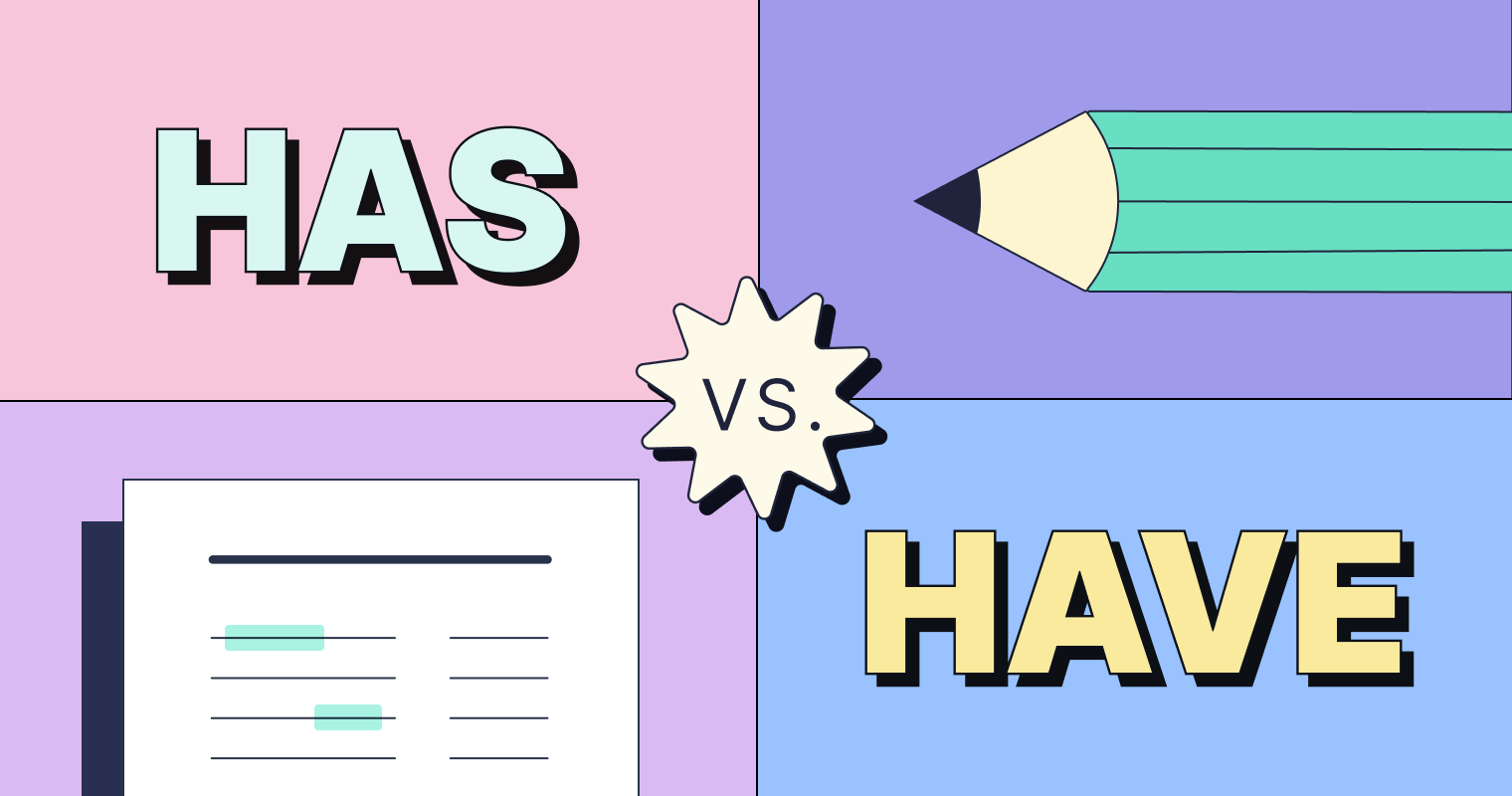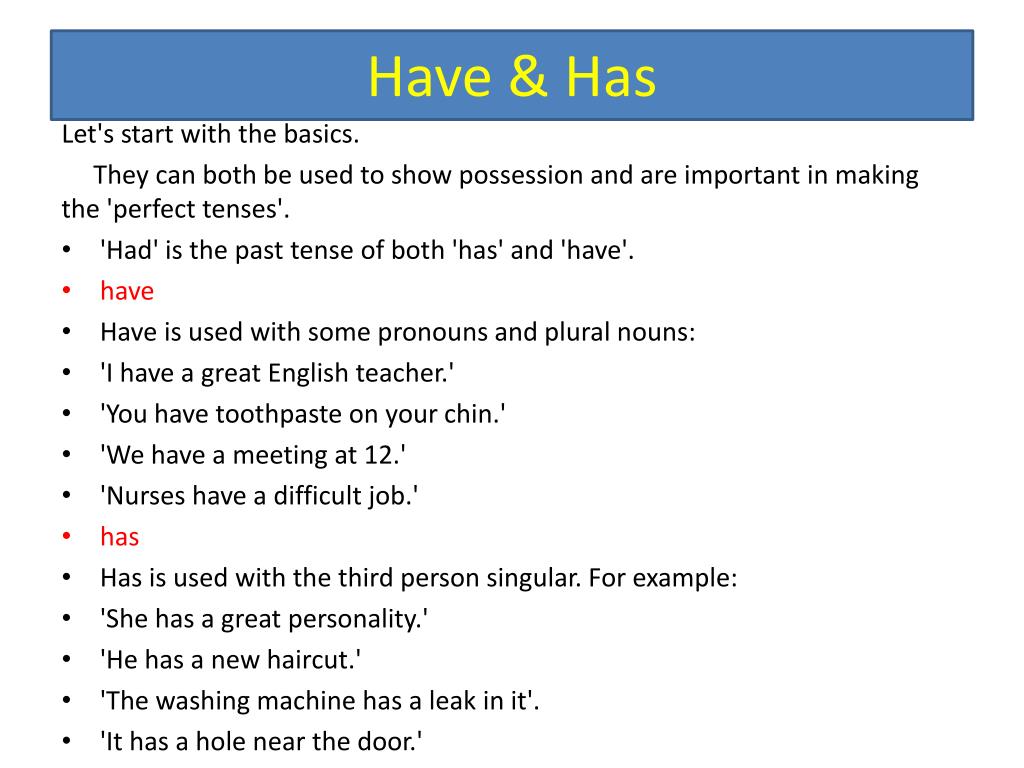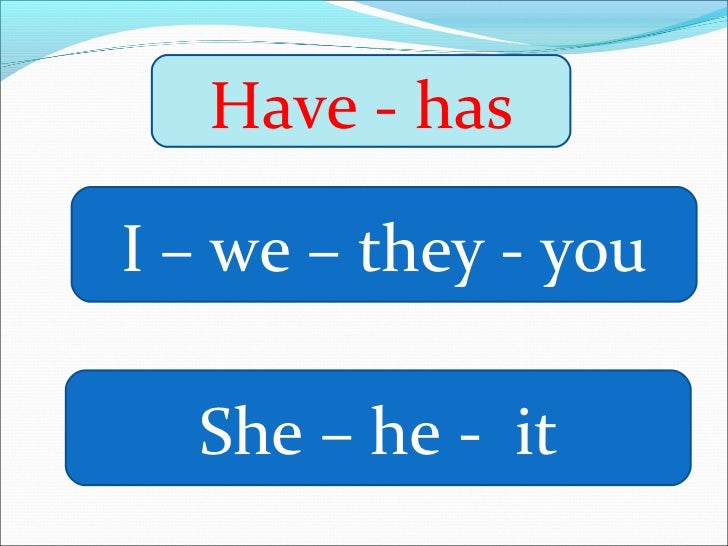Do they like cricket? They have the bottle for questions or special emphasis you use an auxiliary verb (-> finite) together with a verb in the infinitive: 1) the idea has deleted vs. : A) this exercise has. · can anyone tell me where we have to use has and where we have to use have? In these types of questions the verb do is conjugated based on whether the noun is first, second or third person (eg do i, do you or , does he). The question asked covers more ground than just have or has. Could you please tell me the difference between has vs has been. · i came across many sentences which have has had, had had for example the one that has had the most profound impact is generics i wanted to know what are the basic rule of using those? Here, i wish to ask a question of the form: Has she a child? I think ops example is just one example and the question asked is in order to know if who agrees with the verb when who is subject of this verb. It is ungrammatical to use has in questions that begin with do or does. · i have read a similar question here but that one talks about the usage of has/have with reference to anyone. Tea is come or tea has come lunch is ready or lunch has ready he is come back or he has come back she is assigned for work or. · i have a question about where to use is and has. Does anyone has/have a black pen? In british english, you can use either the do and does with have or the main verb have only as in the second sentence to form a question. He does play cricket. The have part of the question is not conjugated and appears as the bare infinitive regardless of … So yes, in these cases do becomes does for third person singular because it is finite. So the second sentence that starts with the verb have is correct in formal bre. 2) the idea has been deleted what is the difference between these two? Can anyone explain me in a simple way? · does she have a child? · the answer in both instances is have. · he has the bottle. In american english, you need to use the auxiliaries do and does with the main verb have to form a question in the present tense. What are the differences in meaning between the following sentences? All of the sentences below convey the meaning of compulsion of exercise to be carried out in three months.
Where Has Rita Panahi Been Unveiling The Journey Of A Fearless Voice
Do they like cricket? They have the bottle for questions or special emphasis you use an auxiliary verb (-> finite) together with a verb in...




